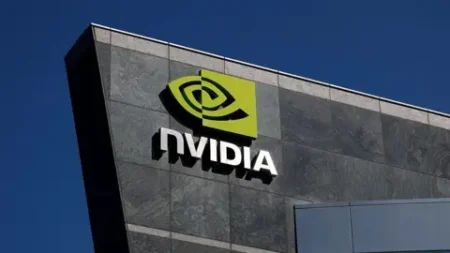**VPN Apps Surge in Popularity as the Online Safety Act’s Age Verification Takes Effect**
In recent days, a significant shift has occurred in the digital landscape of the UK, as virtual private network (VPN) applications have witnessed a meteoric rise in downloads on Apple’s App Store. This surge coincides with the enforcement of the Online Safety Act, which requires various adult-oriented websites, including PornHub, Reddit, and X, to implement age verification for their users. The law, which took full effect on Friday, has prompted a dramatic influx of users seeking to bypass these restrictions by disguising their online locations.
VPNs serve the crucial function of masking a user’s actual IP address and location, thus allowing individuals to access the internet as if they were browsing from a different country. This has led many to turn to VPNs to sidestep the age verification protocols instigated by the Online Safety Act. By Monday morning, an astonishing half of the top ten free applications available on the UK App Store were recognized as VPN services. One app developer even reported to the BBC that they experienced a staggering 1,800% increase in downloads over the weekend, reflecting the immediate response to the new regulations.
The implications of this shift reflect a growing trend in online behavior where users are willing to engage with technology that potentially compromises their security in favor of unrestricted access to content. VPNs function by connecting users to websites via remote servers, thus circumventing geographical content restrictions. However, it is crucial to acknowledge that many free VPN services often harbor significant security and privacy risks. Cybersecurity expert Daniel Card from the Chartered Institute for IT (BCS) pointed out that while users may find these free services enticing, they are commonly plagued with vulnerabilities. These free VPNs may act as conduits for data harvesting companies, and their poorly developed infrastructure could leave users susceptible to cyberattacks.
Card highlighted that despite these risks, a considerable number of users still opt to use such VPN applications to access age-restricted content. “The uncomfortable truth is that people are willing to take risks to fulfill their desires for online content,” he stated.
The Online Safety Act itself has been a focal point of discussion, particularly around its effectiveness in protecting children from adult content online. As part of the law, websites with access to adult materials are compelled to introduce “highly effective” age verification methods. Katie Freeman-Tayler from Internet Matters expressed her concern regarding the accessibility of free VPN services to children. She emphasized that these services can easily undermine age verification efforts designed to shield minors from adult content.
In response, Ofcom, the regulator for the UK communications industry, asserts that platforms must not host or share content that encourages users to exploit VPNs to bypass age checks. The government further reinforced that it would be illegal for such platforms to facilitate these activities.
Interestingly, amid the chaos surrounding the compliance with the Online Safety Act, privacy-oriented VPN services have seen a dramatic rise in user engagement. Proton VPN, a product of the Swiss privacy tech firm Proton, reported an incredible 1,800% increase in daily sign-ups in the UK following the age verification law’s implementation. A representative from Proton commented, “This clearly indicates that adults are increasingly concerned about how universal age verification could infringe upon their privacy.”
On the contrary, while many free VPN applications claim to ensure user privacy and security, the reality of the average user’s behavior suggests otherwise. Mr. Card remarked that many users tend to download the first free VPN that appears reliable without fully understanding the privacy implications involved in using lesser-known programs.
In conclusion, the surge in VPN app downloads in the UK following the introduction of the Online Safety Act highlights a critical intersection between user rights, privacy, and internet accessibility. As stakeholders navigate the complexities of online safety regulations, the responsible usage and understanding of digital tools like VPNs remain crucial in maintaining a safe online environment.











